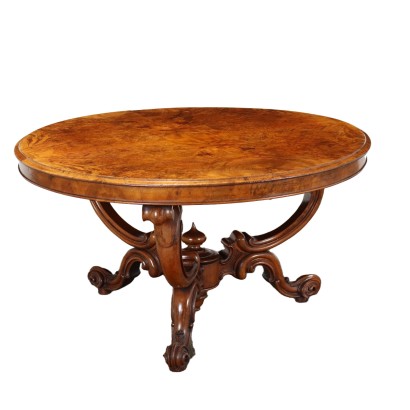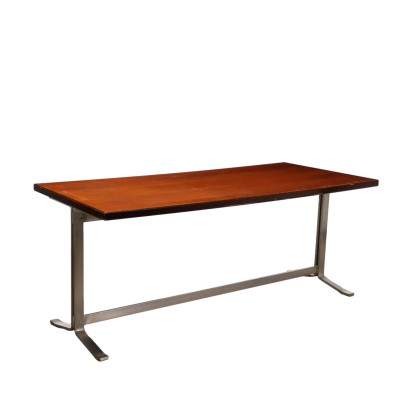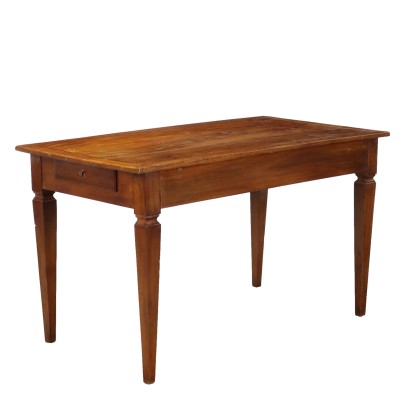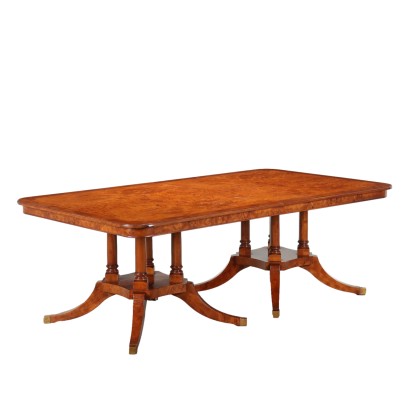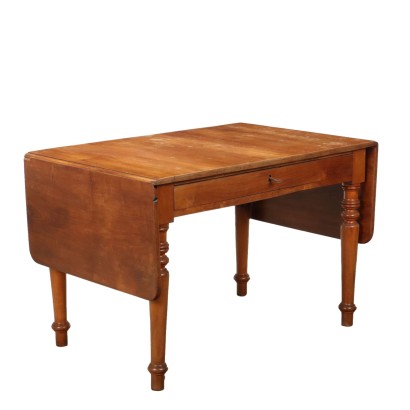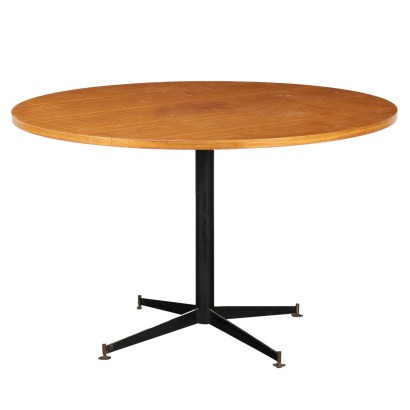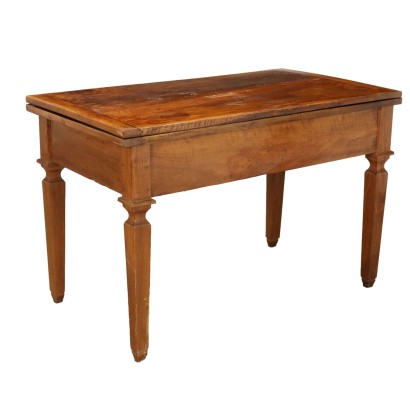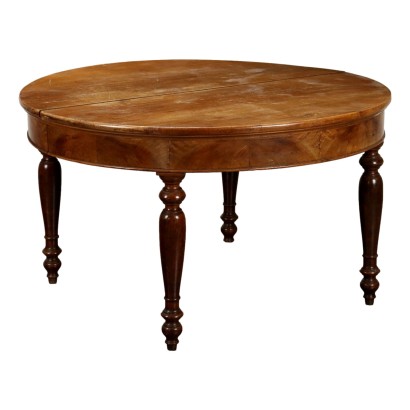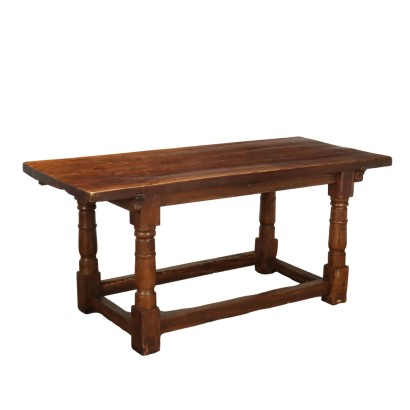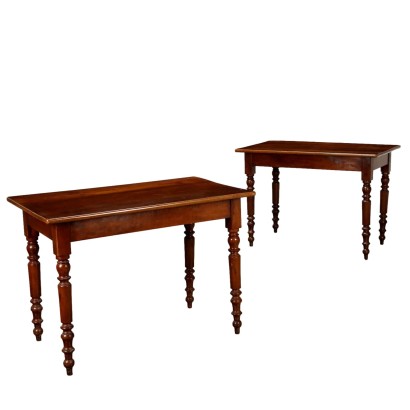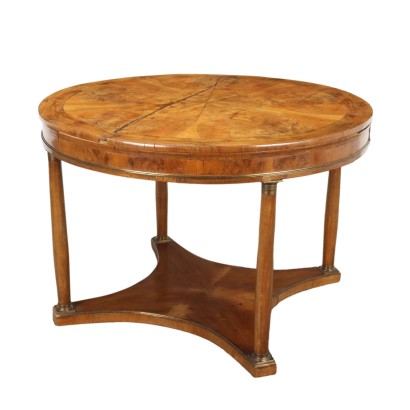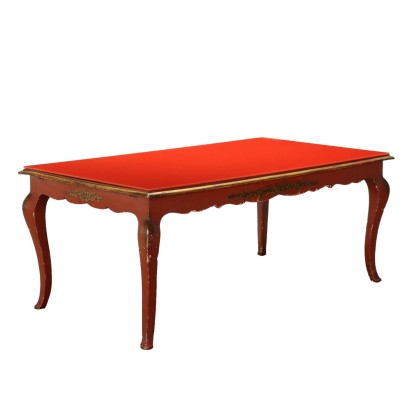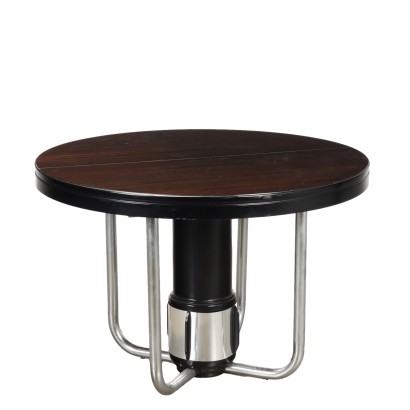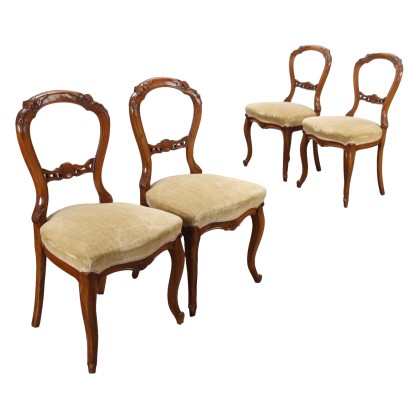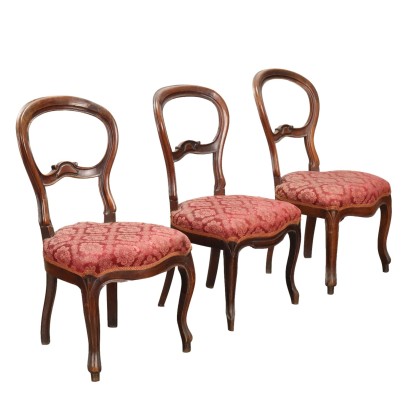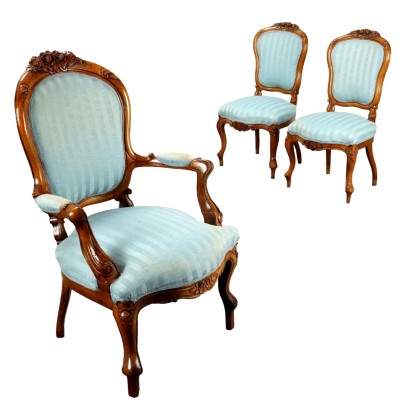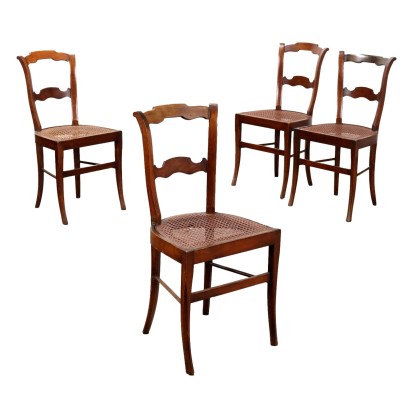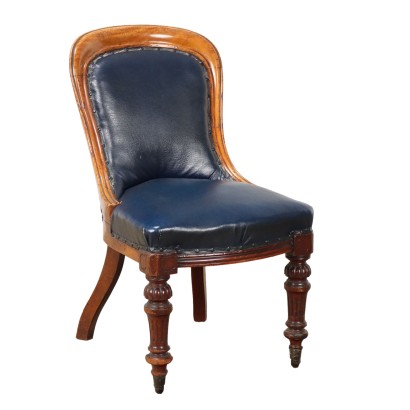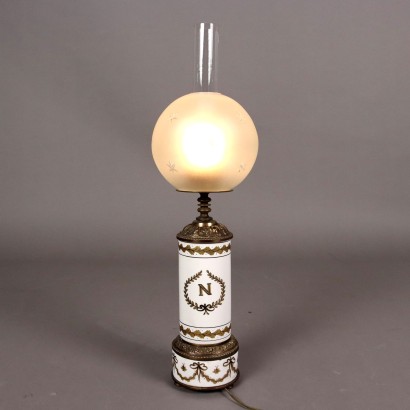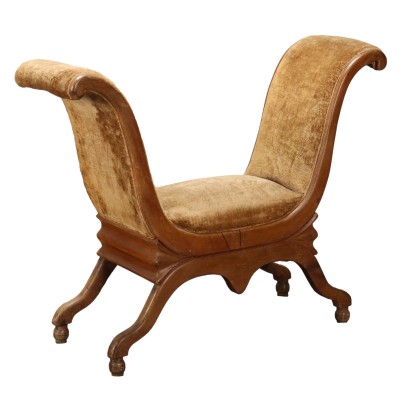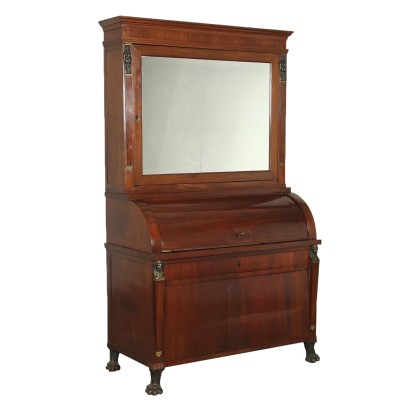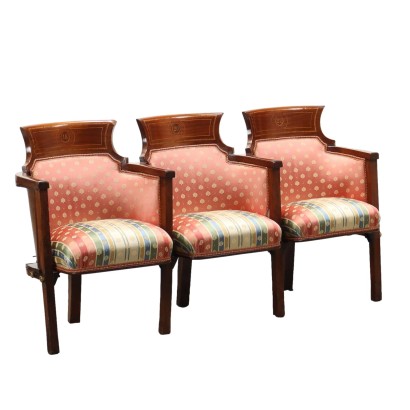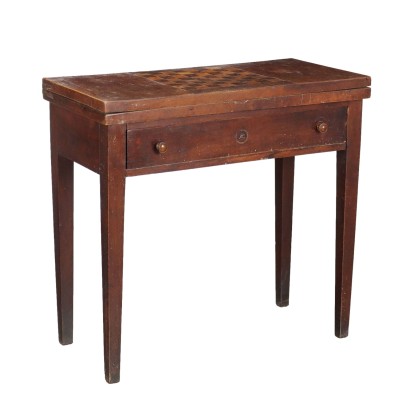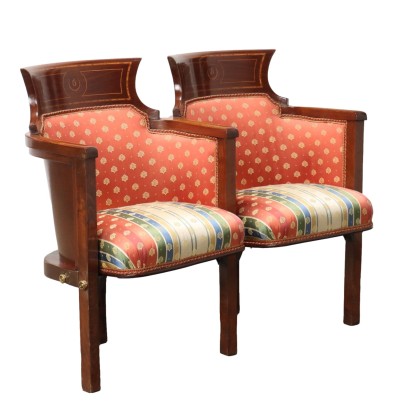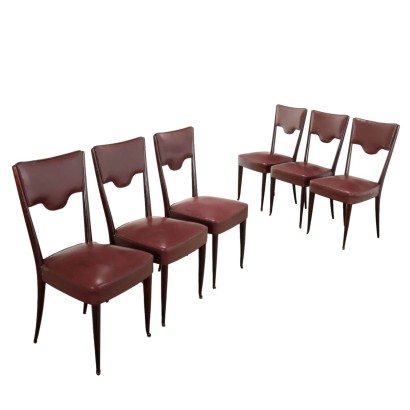Louis Philippe Table Mahogany Italy XIX Century
Features
Style: Louis Philippe (1830-1848)
Age: 19th Century / 1801 - 1900
Origin: Liguria, Italy
Main essence: Mahogany
Material: Burl Veneer
Description
Ligurian basket table, mid 19th century, made of mahogany, with legs connected according to the typical basket shape, carved with volutes, the top is veneered in briar.
Product Condition:
Furniture in good condition, with small signs of wear.
Dimensions (cm):
Height: 70
Diameter: 130
Additional Information
Style: Louis Philippe (1830-1848)
The Louis Philippe style developed in a context characterized by two main factors: the expansion of the bourgeoisie and the advent of the industrialization of production processes.
This style therefore faces the decline of artisans and the new needs for economy and comfort.
Aesthetically, it takes elements from the past, especially from the Gothic and Renaissance, preferring very curved shapes for the backrests of the seats, roe deer legs and feet, with a very rich decoration.
It mainly uses dark woods: ebony, rosewood and mahogany, combined for contrast with light elements.
Find out more with our insights:
The Louis Philippe style
Classic Monday: Louis Philippe and Umbertina consoles compared
The Austrian taste of Baroque
History of Louis Philippe furniture
The Umbertino style
Antiques in Lombardy
The Evolution of the Empire Style
Age: 19th Century / 1801 - 1900
19th Century / 1801 - 1900Main essence: Mahogany
It is one of the most precious and sought-after woods in cabinet making. It was discovered in Central America around 1600 and began to be imported to England in the 1700s. Much appreciated for its hardness and indestructibility, it became widespread following the blocking of walnut exports from France in 1720 and the consequent elimination of English import duties on mahogany from the colonies in America and India. The most valuable version comes from Cuba, but it became very expensive. At the end of the 18th century it began to be used also in France in Louis XVI, Directory and Empire furniture, its diffusion declined starting from when Napoleon, in 1810, forbade its import. It was generally used in the manufacture of elegant furniture, due to its characteristics and beautiful grain.Material: Burl Veneer
Other customers have searched:
Approfondimenti
Se ti interessano tavoli, tavolini, tavoli a vela, scrivanie, scrittoi e consolle dai un'occhiata ai nostri approfondimenti sul blog...Classic Monday: da un pezzo dei nostri magazzini alla storia dell'antiquariato
L'antiquariato dalla A alla Z: il Dizionario dell'Antiquariato
Il dizionario dell'antiquariato - Lastronatura
Il dizionario dell'antiquariato - Mascherone
Il dizionario dell'antiquariato - Natura morta
Il dizionario dell'antiquariato - Opificio
Il dizionario dell'antiquariato - Pastiglia
Il dizionario dell'antiquariato - Savonarola
Il dizionario dell'antiquariato - Rosone
Due eccezionali scrivanie di produzione lombarda
Uno scrittoio San Filippo dalle forme eleganti e ricercate
Intaglio barocco con motivo a ricciolo
Sui tavoli:
Il Neobarocco in un grande tavolo dell'800
Il Tavolo a fratino
Sui tavolini:
Breve storia dei tavolini
Un tavolino impero lombardo: segno di egemonia politica
Il tavolino da gioco, questo sconosciuto
Il dizionario dell'antiquariato – tavolino a Commesso
Sulle consolle:
Una superba consolle austriaca
L'attenzione neoclassica per i dettagli in una consolle torinese decorata a pastiglia
Una raffinata consolle demi-lune piemontese neoclassica
L'estetica elegante e raffinata di una Consolle fratinata
Simili ma diverse: una consolle Luigi Filippo e una umbertina a confronto
...e alle presentazioni su FineArt
Tavoli antichi:
Tavolo campionario lapideo, Roma, Opificio Raffaelli
Tavolo a vela, attribuibile a Luigi e Angiolo Falcini
Tavolo attribuibile a Luigi e Angiolo Falcini
Gueridon, Regno delle Due Sicilie, primo quarto XIX secolo
Tavoli modernariato e design:
Archivio Borsani, patrimonio di memorie e saperi
Tavolo anni '40 ABV
Tavolo Mario Vender Anni '60
Tavolo anni '50 ABV
Tavolo '522' Gianfranco Frattini per Bernini
Tavolo 'Barium' Luciano Frigerio
Tavolo anni '50, Manifattura Italiana
Scrittoi e scrivanie:
Scrivania Anni '50
Scrittoio, Marco Calestrini, Firenze, ultimo quarto del XVIII secolo
Scrittoio, Antonio Mascarone, inizi XIX secolo
Scrittoio, Arthur Blain, Liverpool 1840 ca.
Scrittoio a dorso d'asino, Piacenza, metà XVIII secolo
Scrittoio, Antonio Mascarone, inizi XIX secolo
Consolle e tavoli parietali:
Consolle a pastiglia
Tavolo parietale, Firenze 1780-1785ca.
Consolle inglese, metà XIX secolo
Consolle parietale
Coppia di consolle in pietre laviche
Consolle anni '50, manifattura italiana
Tavolini antichi:
Coppia di tavolini Tomaso Buzzi, attribuiti
Tavolino da gioco, Bottega Giuseppe Maggiolini, inizi XIX secolo
Tavolino piano commesso, Toscana, Inghilterra, Metà XIX Secolo
Tavolino Piano Commesso, Amic Hotton (attribuito a ), XIX Secolo
Tavolini modernariato:
Tavolino anni '50
Tavolino anni '40 ABV
Tavolino anni '60
Product availability
The product can be seen at Milan
Immediate availability
Ready for delivery within 2 working days from ordering the product.

